An Opportunity for Rhode Island to Lead the Way for Civil Rights, Responsible Government, and Conscientious Budgeting
.
.
OVERVIEW
Civil forfeiture laws represent one of the most serious assaults on cars, cash, and other private property by government today. While many policymakers and citizens might assume that these laws are directed at criminals, in reality simply being suspected or accused of a crime is sufficient for a state to take your property. Rhode Island is no different.
The Attorney General’s description of our state laws provides some sense of perspective and context:
The Narcotics and Organized Crime Unit (NOCU) is “responsible for processing all narcotics, gambling, and racketeering-related asset forfeitures. Proceeds from the sale of forfeited assets represent an important source of ongoing drug and crime suppression efforts of state and local police. In 2016, the Unit opened 284 new forfeiture cases and disposed of 277 cases. In total, the Unit seized $1,682,426 in cash and property and processed $979,700 in total cash and property forfeited. Under Rhode Island General Law, assets obtained through illegal drug operations are forfeited and distributed among state and local police, the Office of Attorney General, and the Department of Behavioral Healthcare, Developmental Disabilities & Hospitals (BHDDH). As prescribed by statute, 20 percent of seized proceeds shall be provided to the Office of Attorney General to be used for further drug-related investigations and prosecutions, 70 percent is divided among the state and local police departments proportionately based upon their contribution to the investigation, and 10 percent provided to BHDDH to support substance abuse treatment programs. Last year [2016], $449,206 in “cash” was distributed to the Rhode Island State Police and local police departments, $64,172 to BHDDH, and $128,344 to the Office of Attorney General. Another $283,380 worth of forfeited property was distributed to state and local law enforcement agencies for use or auction.” [i]
While the original good intent of such forfeiture laws cannot be disputed — removing the ill-gotten gains, resources, and instruments of those committing crimes from their reach — the experience of many years has drawn attention to needed reform in the authorizing statutes. Since 2014, 25 states and the District of Columbia have passed forfeiture reforms. [ii] Reform for Rhode Island is long overdue.
General Recommendations
- Improve administration of forfeiture programs in order to increase the credibility of law enforcement as they conduct permitted seizures.
- Build in transparency around asset forfeiture actions so that elected officials and citizens have the data necessary to provide oversight and improve the processes. This includes keeping track of how much the state seizes, whether the citizens are ever convicted of a crime, and how much money comes in from those seizures.
- Local governments should not profit from asset forfeiture and should be held accountable if they abuse the process.
- We should avoid seizures from innocent property owners and co-owners and build in legal protections before the state takes final title to property.
- Most importantly, we must raise the bar and provide prompt and streamlined legal procedures to protect the property rights of innocent owners.
INTRODUCTION
This paper is intended to provide a detailed analysis of legislation proposed in the 2018 session of the Rhode Island General Assembly that would significantly reform those provisions of Rhode Island law which allow law enforcement agencies to seize money and property from criminal suspects and retain those monies for their own purposes.
Current Rhode Island law lets the state take your property on the basis of no more than suspicion. If you don’t hire a lawyer and file a lawsuit against your own property, you soon lose it. Worst of all, Rhode Island allows the law enforcement agency that seized your property to keep the majority of it to supplement their own budgets, creating a perverse incentive to violate your due process rights.
By way of example, and as noted in recent Senate Judiciary Committee testimony by Assistant Public Defender Michael A. DeLauro:
A leading Rhode Island Supreme Court decision amply illustrates the need for reform. In State v. Grullon, 783 A.2d 928, 929 (R.I. 2001) the defendant was arrested for and charged with unlawful delivery of a controlled substance. At the time of his arrest he was in possession of $2183.00 that was to be used in moving his family from New York City to Providence. Immediately after his arrest the state initiated successful forfeiture proceedings. After a jury waived trial in which the defendant was found “not guilty” of unlawful delivery of a controlled substance he sought to undo the forfeiture. In denying the request both the Superior and Supreme Courts relied on technical grounds holding that 1) it was not within the province of the court to do so and 2) the forfeiture did not violate due process and the Eighth Amendment’s protection against the imposition of excessive fines.[iii]
The Rhode Island Center for Freedom & Prosperity is leading a coalition to raise the bar for asset forfeiture and adopt better practices. As a part of that effort the Hopkins Center has researched model legislation and best practices in the other states that have adopted reforms, including those adopted by our fellow New England State of New Hampshire.
FORFEITURE 101: GUILTY UNTIL PROVEN INNOCENT
At its most basic level, asset forfeiture is a trade-off between the demands of policing and the civil rights of citizens. [iv] No one objects to taking weapons from criminals caught in the act, seizing the stolen goods they hold unjustly, or making them pay restitution for the harms inflicted as they absconded with their ill-gotten gains. At the same time, no one would question the right of innocent owners to be secure in their property. The idea that the government cannot seize your assets on a whim — that “due process” is required — is a bedrock principle of our constitutional democracy. Asset forfeiture lives in a grey area between those competing ideals, and from time to time, the pendulum of freedom swings a bit wide.
Pirates, Prohibition, and Scarface: The Birth of a Problem
Chip Mellor gives an excellent summary of the origins of asset forfeiture laws in American law: [v]
American forfeiture law arose from the British Navigation Acts of the mid-17th century. Passed during England’s vast expansion as a maritime power, the Acts required that any ships importing or exporting goods from British ports fly under the British flag. If the Acts were violated, the ships or the cargo could be seized and forfeited to the crown regardless of the guilt or innocence of the owner. The British laws focused on seizing the assets because they could punish violations of the law even when they could not capture the violators. Using the British statutes as a model, the first U.S. Congress passed forfeiture statutes to aid in the collection of customs duties, which provided up to 90 percent of the finances for the federal government during that time.
The U.S. Supreme Court upheld early forfeiture statutes. Most important to understanding these early cases is the underlying rationale for permitting civil forfeiture even against innocent property owners. The Court reasoned that civil forfeiture was closely tied to the practical necessities of enforcing admiralty, piracy and customs laws. Such forfeiture permitted courts to obtain jurisdiction over property when it was virtually impossible to obtain jurisdiction over the persons guilty of violating maritime law. Justice Joseph Story wrote that the “vessel which commits the aggression is treated as the offender, as the guilty instrument or thing to which the forfeiture attachés, without any reference whatsoever to the character or conduct of the owner.” Justice Story justified these forfeitures “from the necessity of the case, as the only adequate means of suppressing the offense or wrong, or insuring an indemnity to the injured party.”
Although asset forfeiture law saw increased use during the Civil War and then again during Prohibition, it wasn’t until the 1980s and the heyday of the war on drugs that forfeiture became such a powerful weapon in the government’s arsenal. The fear of drug lords in mansions with pet tigers and machine guns ran rampant, and as with many erosions of civil rights, fear led to calls for more authority and more discretion to be placed in the hands of law enforcement. And as with most such erosions, time has tended to demonstrate that, once in hand, the government will take such power and discretion to its limit.
RHODE ISLAND STATUTES: A FAILING GRADE FOR JUSTICE
The data in Rhode Island demonstrates that maxim fairly clearly. According to the Institute for Justice, which produces a state-by-state report card on the topic, “Rhode Island has awful civil forfeiture laws.” [vi] That blunt assessment and the D- grade award our state is reflective of at least three important factors in the existing law:
- Law enforcement need only show probable cause to seize property, but for property to be returned in Rhode Island, it is up to owners to prove by a preponderance of the evidence that their property is not forfeitable. (“Guilty until proven innocent,” as it were.)
- Innocent owners making claims also bear the burden of proving that they had no involvement in the illegal use of their property in order to recover it.
- Rhode Island law enforcement agencies retain 90% of all forfeiture proceeds, a generous incentive to aggressively wield their forfeiture powers.[vii]
Social Injustice
Another unfortunate feature of asset forfeiture schemes generally is that they have disparate impacts with regard to race and income. Using data collected by Lucy Parsons Labs, a Chicago non-profit that focuses on police accountability, the Reason Foundation mapped the addresses where asset seizures took place in Cook County, Illinois. The results were not surprising.
“This data shows what we already know, that the seizures tried by CCSAO overwhelming steal the possessions of poor people,” Lucy Parsons Labs said in a statement to Reason. “The data shows that the seizures are clumped in the South and West side, overwhelmingly African-American neighborhoods.”[viii] (Emphasis added.)
Law enforcement agencies in Rhode Island are required to report their forfeitures to the state treasurer and attorney general, who then aggregate the data and provide annual reports to the legislature. Disappointingly, these reports are not available online. Law enforcement agencies reportedly seized more than $8.3 million through asset forfeiture proceedings between 2009 and 2014, averaging almost $1.4 million per calendar year.
The current asset forfeiture structure in Rhode Island not only demeans the law and our judicial system, it demeans the profession for all of law enforcement. Our laws are bad for good cops.
A SOLUTION: THE ASSET FORFEITURE PROCESS AND PROPERTY RIGHT PRESERVATION ACT
The reform act now pending before the Rhode island General Assembly was drafted with three key goals in mind:
- Add well-defined structure to the administration of forfeiture programs in order to increase the credibility of law enforcement as it undertakes permitted seizures
- Avoid seizures from innocent property owners and remove financial incentives that would encourage overreach in this area
- Make the seizure process transparent so that elected officials and citizens have the data necessary to provide oversight and improve
the processes
Key Provisions
Restore Revenue Oversight to the General Assembly
Current Rhode Island law has none of the 10 national best practices for accounting for forfeiture fund spending. [ix] This means that we have the lowest possible rating for accountability for spending of seized funds. While many states are adding oversight requirements for local departments, horror stories of uncontrolled spending abound. The Institute for Justice compiled a list of the six “craziest” expenditures that can be viewed on YouTube[x] but bear summarizing here:
#6 Steak, booze, and CeeLo Green tickets
#5 Tequila, rum, kegs of beer, and a margarita machine
#4 A six-day law conference (junket) in Hawaii
#3 A $90,000 Dodge Viper
#2 A $35,000 inmate-built “party house”
#1 $40,000 for drugs and prostitutes
Revenue from seizures is in part paid directly to the local law enforcement agencies conducting the seizures. While reasonable as a means of rewarding good policing, this system also carries the risk of creating a financial incentive to abuse the process. The reform act would direct all funds seized under state law to the general treasury, eliminating one of the last vestiges of what is generally referred to as a “restricted receipt” account system, consistent with broad state reform efforts undertaken on this front in the past. Essentially, the move away from restricted receipt accounts returns budgeting authority to the General Assembly, rather than creating slush funds with little or no accountability.
These off-budget accounts lead to waste in the worst cases, but even in the best cases, they end-run the authority of the legislature and leave the spending decisions to the whims of local agencies. A more-conscientious approach not only retains the checks and balances of legislative oversight of budgeting, but also helps avoid the egregious and embarrassing expenditures that so often make the news and demean the reputations of law enforcement agencies everywhere.
Protect Innocent Property Owners
Under the current system, innocent Rhode Islanders must live in fear of losing their cars or their homes because little Johnny was caught selling pot to his friends in the family minivan or his bedroom. Reforming the financial incentives as noted above reduces the risk of such overreach by law enforcement and leaves the spending discretion that our forfeiture program provides squarely in the hands of the legislature.
This shift in incentives, coupled with procedural protections omitted from early asset forfeiture laws, creates a strong set of defenses for innocent property owners. The legal process is spelled out clearly, deadlines and timing are addressed in detail, and innocent owners promptly get to make their cases to the court.
The model case for why these rights need to be enshrined in law is that of Anthonia Nwaorie. As recently reported by the Washington Post, Ms. Nwaorie, a 59-year-old registered nurse, was traveling to Nigeria to open a medical clinic and had $41,000 in cash she had saved for that purpose seized for no reason other the fact that she was carrying a large amount of cash. Six months later she has yet to get it back, in part because law enforcement demanded that she first sign a legal release protecting them from lawsuits. [xi]
Data Collection and Transparency
The reform act is not intended to weaken this valuable law enforcement tool. In order to ensure that it is being used properly and judiciously and to further allow the legislature to monitor its effects and reach over the years to come, the act provides detailed data collection and reporting guidelines.
These data points will allow us to compare Rhode Island to other states that are collecting similar data and to assure ourselves that these tools are being used, but not abused. Transparency, particularly in the realm of law enforcement, is vital toward establishing trust in government and a feeling withing communities that all are being treated fairly. The law should be blind, but the legislature should not. [xii]
Outline
An outline and brief description of each substantive sections of the model legislation is provided in Appendix A.
CONCLUSION
The criminal justice system today looks little like that of its predecessors in the common law or even the system created at the time of the birth of our country. It is larger, more expansive, more expensive, and covers more conduct and more citizens than ever before.
But that does not mean that the fundamental aspects of criminal justice that serve to ensure a fair and just system for all citizens should be ignored. In fact, quite the opposite. A robust criminal justice system demands robust protections for innocent citizens, to ensure they are not unfairly caught up in the system.
Asset forfeiture reform would prevent unjust seizures from innocent citizens. It would protect citizens from overzealous law enforcement action and provide peace of mind for those taking part in wholly innocent and blameless — even admirable — behavior. It would empower the legislature by restoring its right and proper budgetary authority over seized funds. It would also make great strides toward building in protections for law enforcement that ensure their reputations, their professionalism, and their community support remain as solid as possible.
APPENDIX A: SECTION OUTLINE OF MODEL LEGISLATION
This outline is intended to serve as a handy guide to the substantive sections of the legislation and is not comprehensive or a complete list of provisions.
Section I
Chapter 1: Title.
Chapter 2: Definitions.
Chapter 3: Purpose.
Chapter 4: Property Subject to Criminal Forfeiture.
Chapter 5: Exemption for cars of modest value.
Chapter 6: Conviction and proof to a defined legal standard are required for seizure and forfeiture of assets.
Chapter 7: Substitution of assets of the accused criminal trying to avoid forfeiture is allowed if the assets that would otherwise be subject are out of reach.
Chapter 8: These laws provide the exclusive process for forfeiture in Rhode Island.
Chapter 9: There is no joint and several liability in forfeiture that would allow a third party to have property seized.
Chapter 10: Seizure must generally be by court order.
Chapter 11: If the police are concerned about losing access to the property that should be seized, they can do so without a court order so as to avoid removal or destruction of the property by the suspect.
Chapter 12: Seizer of real property (a house) must be done by court order.
Chapter 13: Record keeping requirements are outlined.
Chapter 14: Government can’t force an innocent property owner to give up due process rights in order to get property back.
Chapter 15: The property owner can secure a bond or substitute property of equal value to get seized property back while waiting for trial. This is particularly important for innocent owners who have business assets seized and would otherwise be prevented from earning a living.
Chapter 16: Provides a pre-trial hearing process in order to determine that a seizure was done legally.
Chapter 17: Details rules for discovery and trial procedure.
Chapter 18: Outlines trial procedure and requires the state to promptly give its reasons and justifications for seizure and forfeiture and provides clear proced-ural steps for the government to follow in order to complete the forfeiture.
Chapter 19: Allows a property owner to argue that the value of a seizure is disproportionate to the crime of which he or she was accused.
Chapter 20: Protects banks and other secured parties to the extent of their interests in seized property (for example, mortgages and car loans.)
Chapter 21: Protects innocent owners.
Chapter 22: Outlines appeal procedures.
Chapter 23: Describes the process for disposition of proceeds from forfeitures,
including restitution of victims, costs of police investigations, and the costs of the prosecution.
Chapter 24: Provides limits on retention or sale of property by law enforcement agencies.
Chapter 25: Places requirements for the prompt and complete return of the property of innocent owners.
Chapter 26: Limits the ability of law enforcement to end-run state due process protections by turning over seized property to the federal government.
Chapter 27: Allows innocent owners the right to recover attorney’s fees spent in fighting to get property back.
Chapter 28: Creates a process for returning the property of otherwise innocent owners who have been deported, and a process for abandonment of that property if no interested party can be identified.
Chapter 29: Creates penalties for violations of these laws.
Chapter 30: Makes clear that these laws preempt and local laws, rules, procedures, or practices.
Chapter 31: Severability of any provision found invalid.
Section II
Strikes the existing laws relating to asset forfeiture in Rhode Island, which have been replaced by the laws in Section I.
Section III
Provides that the legislation would take effect upon passage.
[i] Office of the Attorney General. 2016 Annual Report. Available at: www.riag.ri.gov/documents/2016AnnualReport.pdf (Accessed 5/14/18.)
[ii] Institute for Justice. “Civil Forfeiture Reforms on the State Level.” Available at: ij.org/activism/legislation/civil-forfeiture-legislative-highlights (Accessed 5/14/18.)
[iii] DeLauro, “Michael A. Written Testimony of Michael A DeLauro, Assistant Public Defender, Director of Training and Legislative Liaison, addressed to Senator Erin Lynch Prate, Chairwoman, Senate Judiciary Committee.” April 26, 2018.
[iv] This summary draws heavily from the “Policing for Profit” report published by the Institute for Justice, authored by Dick M. Carpenter II, Ph.D., Lisa Knepper, Angela C. Erickson and Jennifer McDonald, with contributions from Wesley Hottot and Keith Diggs. Available at: http://ij.org/report/policing-for-profit (Accessed 5/14/18.)
[v] Mellor, Chip. “Civil Forfeiture Laws and the Continued Assault on Private Property.” Forbes. June 8, 2011. Available at: www.forbes.com/2011/06/08/property-civil-forfeiture.html (Accessed: 5/14/18.)
[vi] Institute for Justice. “Rhode Island earns a D- for its civil forfeiture laws.” Available at: ij.org/pfp-state-pages/pfp-Rhode-Island (Accessed 5/14/18.)
[vii] Ibid.
[viii] Ciaramella, C.J. “Poor Neighborhoods Hit Hardest by Asset Forfeiture in Chicago, Data Shows.” June 13, 2017 Available at: reason.com/blog/2017/06/13/poor-neighborhoods-hit-hardest-by-asset (Accessed 5/14/18.)
[ix] Erickson, Angela C., Jennifer McDonald and Mindy Menjou. “Forfeiture Transparency & Accountability: Rhode Island Report Card.” Available at: ij.org/report/forfeiture-transparency-accountability/?state=US-RI (Accessed 5/14/18.)
[x] Institute for Justice. “The Top 6 Craziest Things Cops Spent Forfeiture Money On.” YouTube. January 31, 2014. Available at: www.youtube.com/watch?time_continue=6&v=n2iJ7UBODw8 (Accessed 5/14/18.)
[xi] Flynn, Meaghan. “She saved thousands to open a medical clinic in Nigeria. U.S. Customs took all of it at the airport.” Washington Post. May 9, 2018. Available at: www.washingtonpost.com/news/morning-mix/wp/2018/05/09/she-saved-thousands-to-open-a-medical-clinic-in-nigeria-u-s-customs-took-all-of-it-at-the-airport/?noredirect=on&utm_term=.55b319966e78 (Accessed 5/14/18.)
[xii] Plessy v. Ferguson, 163 U.S. 537, 559 (1896): “In view of the constitution, in the eye of the law, there is in this country no superior, dominant, ruling class of citizens. There is no caste here. Our Constitution is color-blind, and neither knows nor tolerates classes among citizens. In respect of civil rights, all citizens are equal before the law. The humblest is the peer of the most powerful. The law regards man as man, and takes no account of his surroundings or of his color when his civil rights as guaranteed by the supreme law of the land are involved.”



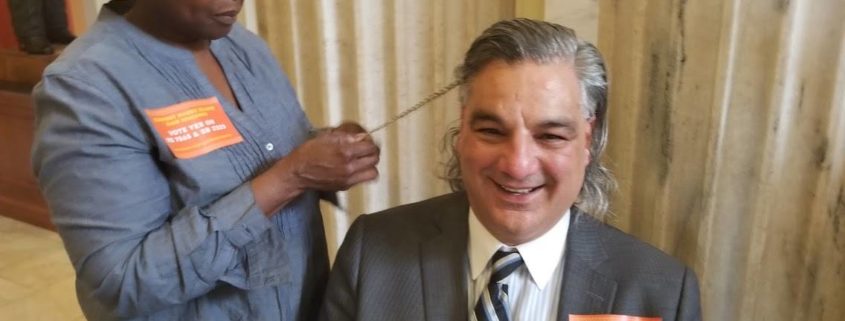



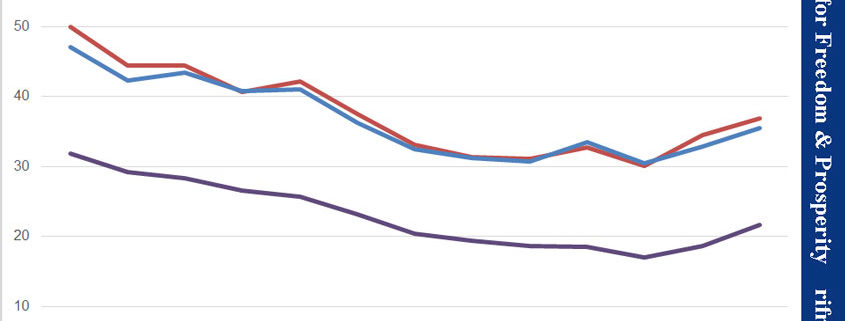

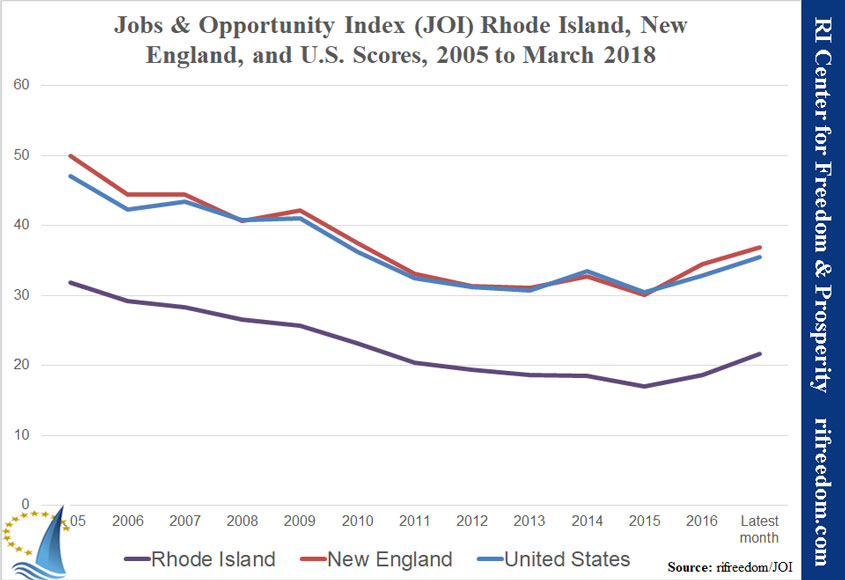
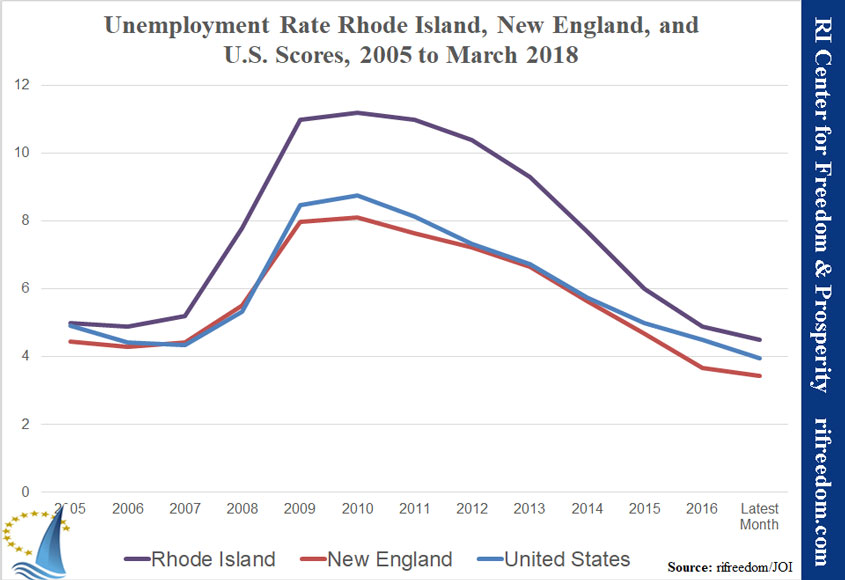



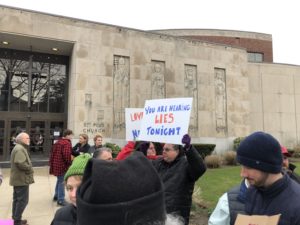

 With “life entrepreneurship” as his central theme, Brooks encouraged the lawmakers and civic leaders in the audience to advance a “start up your life” attitude among the people of Rhode Island. That by taking the risk of investing love, time, and commitment to the important people and self-improvement opportunities in one’s life, that this “start up your life” attitude will bring happiness, prosperity, and overall returns on that investment many times over.
With “life entrepreneurship” as his central theme, Brooks encouraged the lawmakers and civic leaders in the audience to advance a “start up your life” attitude among the people of Rhode Island. That by taking the risk of investing love, time, and commitment to the important people and self-improvement opportunities in one’s life, that this “start up your life” attitude will bring happiness, prosperity, and overall returns on that investment many times over.
